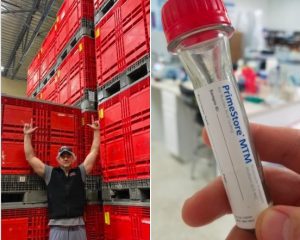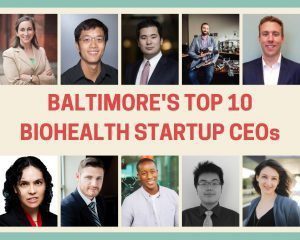
Fifty Years: The Journey from PhD to VC
With the availability of academic positions on the decline, and a boom in startups resulting from disruptive technologies, some PhDs are looking to utilize their unique set of skills in a slightly nontraditional way – venture capitalism (VC). One VC firm, called Fifty Years, has recently concluded its inaugural program (PhD to VC), which aimed at preparing young scientists with the skills needed to jumpstart their VC careers.
Venture capital is a form of private equity financing to startups, early-stage or emerging companies. Venture capitalists take the risk of investing in these companies, in exchange for equity or ownership stake, with the hope that they will be successful. These individuals often operate through venture capital funds such as limited partnerships (LPs). LPs rely heavily on in-house experts with backgrounds (i.e. scientists), business training, and/or industry experience to identify novel/disruptive technologies worth investing in. But do scientists even know that they are needed in this area?
Enter Fifty Years
This entrepreneur-led company, based in San Francisco, invests in technology companies that have massive potential to be successful but that are also dedicated to sustainability. Fifty Years usually partners with founders who want to build a business aimed at tackling some of the world’s toughest challenges (i.e. synthetic biology or food technology) in the pre-seed or seed stage (the earliest stages of funding).
The company is dedicated to supporting founders through the long haul of building their business. They know how hard it can be for these individuals to find investors with the right set of skills, knowledge, and expertise to support them. And they believe that scientists fit this bill. With this in mind, the firm launched the PhD to VC program with a call for applications in February. From a pool of over 350 applicants, the team selected 20 PhD candidates to participate as fellows in its inaugural “nights and weekends” program.
Meet the PhDs
Word of this program was spread far and wide, with graduate students finding out about the program from friends, through internet searches about VC, and even twitter. Each of the budding scientists became interested in VC in their own unique way.
For Kelsey Keading, a 6th year PhD candidate at the University of Pennsylvania, the journey to discover VC was very recent. In fact, just a few short months ago, she was googling “venture capital” to learn more about the subject when she stumbled upon the call for applications to the PhD to VC program. Keading works on epigenetics and gene regulation research, where she works to understand how genes are silenced and their impact on diseases.
She has known for some time now that she did not want to pursue the traditional academic principal investigator track but wasn’t sure exactly what her future would look like. Since the business world of science appealed to her, VC seems like it might be a good fit.
Gosia Latallo, a 5th year PhD candidate at Johns Hopkins School of Medicine, has a slightly clearer vision of her career in VC. Her research involves investigation of amyotrophic lateral sclerosis (ALS) pathology derived from the mutated RNA and toxic dipeptides. But Latallo has always been interested in creative and impactful solutions to current biotech and healthcare problems. The VC world offers a unique path towards making some of the changes that she is passionate about.
Chaz Hinzman already has experience working on the capital markets desk, where he helped biotechnology and pharmaceutical companies raise capital from institutional investors. With no prior experience in science but tons of enthusiasm, he decided to work towards a PhD at Georgetown University where he studies the role of extracellular vesicles (“exosomes”) in pancreas cancer. He wants to bridge the gap between academia and industry to develop ideas/science at a rapid pace.
What does it take to be a VC?
Fifty Years had the fellows meet once a week, in the evening, and on Saturdays, for small group discussions. The program was adapted to fit the hectic schedule that graduate students keep, according to Hinzman. Students were assigned a series of tasks over the course of a 10-week period in the winter of 2021. These included many tasks that real venture capitalists every day, like source opportunities through their professional network, meet with companies and founders to learn more about their vision, draft investment memos, and help actual Fifty Years supported companies with real world problems they face at their startups (hiring, market analyses, etc.).
The fellows found the program to be very insightful and impactful. Many of them plan on starting their careers with the ultimate goal of working in VC. For instance, before the program, Kelsey Keading thought she was going to do an industry postdoc or patent law. But after her experience with Fifty Years, she decided that she wanted to go into management consulting after graduation – a path that many VCs follow. She said that the program helped her realize the importance of networking, a skill that most scientists don’t get pushed to develop.
“Just meeting people can lead to interesting opportunities,” Keading remarked. “VC is soft-skilled oriented. So much of it about making personal connections.”
Likewise, Latallo emphasized how connections she made by participating in the program have already bloomed into new collaborations. In fact, as a result of her efforts, Johns Hopkins University and other schools will start a program this upcoming fall, where founders can be exposed to management and business training as well as mentoring to better prepare them to manage their companies, she said.
Latallo most enjoyed meeting various venture capitalists and learning about how they have helped founders. “All companies have founders who devote all of their time to growing them, often sacrificing their personal life, savings, and even health,” she explained. “Treating the founders and their companies as ‘deals’ is dishonorable.”
Leveraging his previous experience, and now the fellowship, Hinzman plans to land a job in deep tech VC where he can “take long-term views in my decision making as a tactic to improve society.” The program offered him plenty of real-world examples, insights, and anecdotes which solidified that he wanted to pursue VC.
The fellows reported that the program was enjoyable and gave them something fun to think about outside of their research projects. In speaking with them, it was obvious that the Fifty Years team will have a lasting impact on each student and their career paths.



